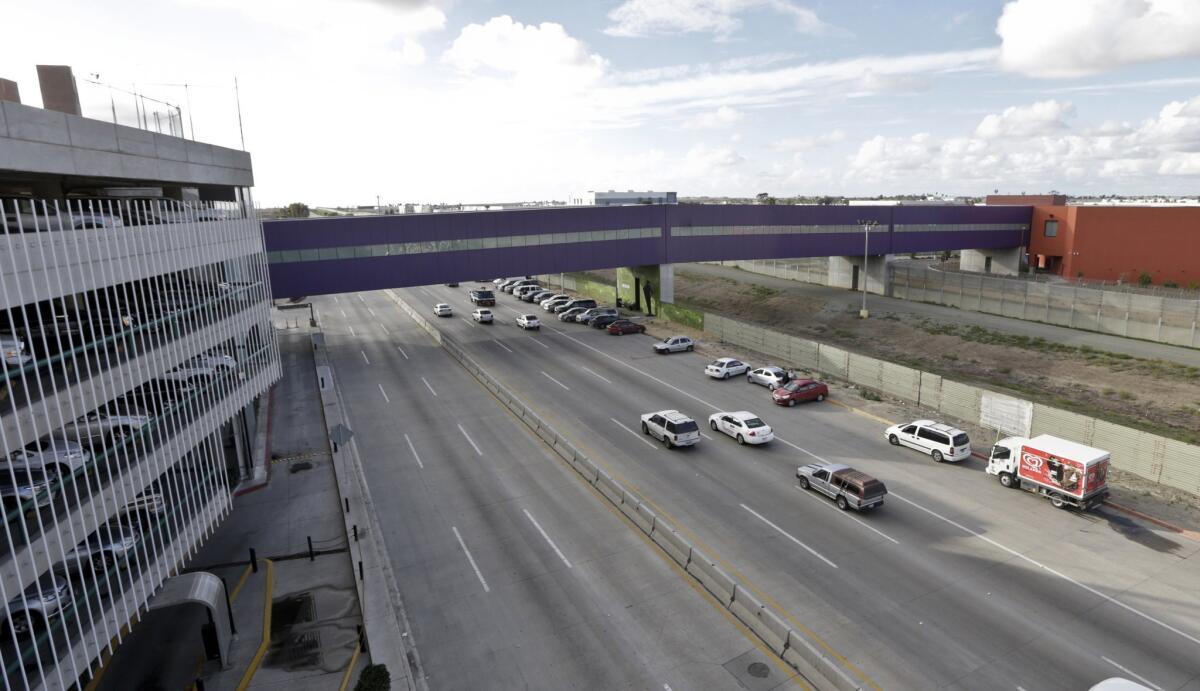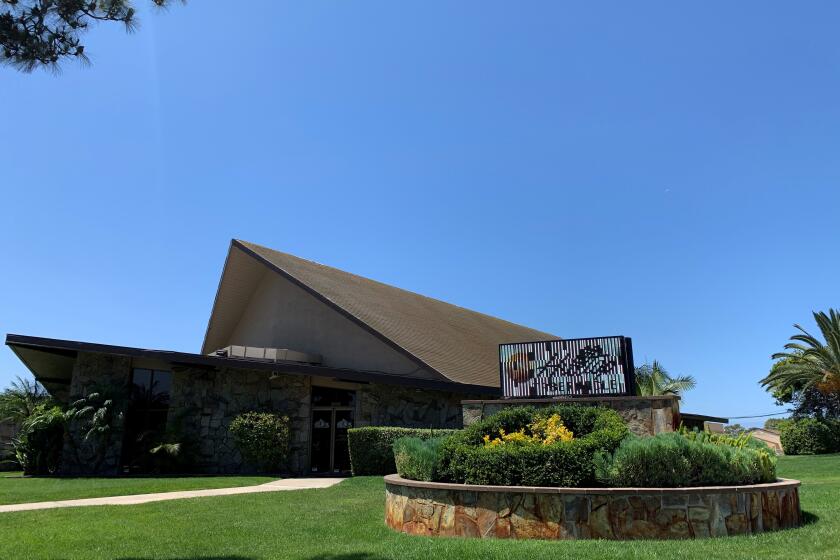3 Southern California men abducted, 2 killed, in cross-border kidnappings

- Share via
They lived in Norwalk, Pasadena and San Diego, but they all disappeared in Tijuana.
Their families got a call demanding money. And in one case, even though the man’s family left $25,000 in cash in a McDonald’s restroom as directed, he was killed anyway, according to court documents implicating a couple, Leslie Briana Matla and Juan Carlos Montoya Sanchez, in a Tijuana-based kidnapping ring.
Matla, 20, and Montoya Sanchez, 25, were charged in Los Angeles federal court with conspiring to launder money. Matla, who lived in San Bernardino County before moving to Mexico, was arrested last week in San Diego. Montoya Sanchez, a resident of Tijuana, was arrested in San Diego on Sunday. It was unclear Monday if either had retained an attorney.
In an affidavit unsealed Monday, FBI Special Agent Cara A. Sammartino detailed the couple’s alleged involvement in three kidnappings committed in the span of a month.
On March 27, the wife of Salvador Acosta Medina, a U.S. citizen who lived in San Diego, reported him missing. Using her husband’s iCloud account, she had found his most recent location: the Hotel Aqua in the Cañón del Padre neighborhood of Tijuana, Sammartino wrote in the affidavit.
The day after he was reported missing, Medina called his son and asked him to pay $25,000 to secure his release. At the direction of his father’s abductors, the son gathered the money and left it in a bag in the women’s restroom at a McDonald’s in San Ysidro, the affidavit said. The restaurant is a short walk from the port of entry to Tijuana.
The number of local coronavirus cases reached 5,836 in San Diego County, on a weekend when protesters again demanded leaders lift public health orders.
Six minutes after Medina’s son dropped the money, Matla left the restroom wearing a backpack and returned to Mexico on foot, Sammartino wrote, citing closed-circuit television footage.
The next day, Medina’s son received a Whatsapp message from his father’s account, saying he would be released that day, according to the affidavit. Instead, Mexican authorities found his body in Tijuana and Medina’s family identified his remains two days later, Sammartino wrote.
Two weeks later, the sister of Edgar Esteban Guzman reported his kidnapping to the FBI.
Guzman, who lived in Norwalk, was visiting family in Tijuana when he got a phone call, a relative told agents. Once he hung up, Guzman said he’d be gone for a few hours but would be back in time for dinner, Sammartino wrote in the affidavit. He wasn’t.
The next day, Guzman called his mother: He was “in trouble,” he told her, and she needed to ask his boss to pay $25,000 to get him out of it, Sammartino wrote. The next morning, his mother got a Facebook message from Guzman’s account — a picture of his beaten face, the affidavit said. She negotiated the ransom down to $1,000 and her son’s Chevrolet Camaro, Sammartino wrote.
Guzman told his mother to hand over the ransom in the parking lot of a Lowe’s in Norwalk. A woman — a “pregnant lady” — would be waiting there, he said, according to the affidavit. For reasons left unexplained in the affidavit, the ransom was never delivered. Mexican authorities found Guzman’s body the following day.
His sister used the family computer to access Guzman’s Google account. His final location, in the early morning hours of the day he was found dead, was the Hotel Aqua in Tijuana, Sammartino wrote. In Guzman’s Gmail account, his sister found a receipt for a Western Union wire transfer: $400 sent to a “Juan Carlos Montoya Sanchez,” the affidavit said.
One week later, a taco shop proprietor drove with a friend to the home of an acquaintance, Oscar Bautista Valencia, who had offered to sell him canned goods at a discount, affidavit said. Due to restrictions from the coronavirus outbreak, his restaurant was low on supplies, the taquero told the FBI. He is identified in the affidavit only by his initials.
When he backed into Valencia’s garage, a man slammed the door shut and a woman came down the stairs, pointing a gun, he told the FBI. Two men beat, bound and blindfolded him and his companion, he said.
At his kidnappers’ direction, the taquero called the mother of his children, who lived in Pasadena, and said he’d killed a family of four while driving drunk and needed to pay $20,000. He said he loved her and their children.
“He was saying goodbye,” he later told the FBI, because he had seen his abductors’ faces and knew they “were going to kill him no matter if a ransom was paid or not.”
She whittled down the ransom payment to $14,000, the affidavit said, and the kidnappers told her to deliver the money that night to a pregnant woman at a Food 4 Less in Lynwood. In the end, she didn’t hand over the money or go to the drop site, the affidavit said. She didn’t need to.
Twenty minutes before the scheduled drop, a Mexican antikidnapping squad notified the FBI they had raided the Hotel Aqua in Tijuana, arrested nine suspected abductors and freed the taquero. A week later, a magistrate judge in Los Angeles authorized warrants for the arrest of Matla and Montoya Sanchez.
“All three incidents appear to be linked based on a common modus operandi, to include common locations used, common phone numbers used to place calls and similar ransom demands,” Sammartino wrote.
More to Read
Sign up for Essential California
The most important California stories and recommendations in your inbox every morning.
You may occasionally receive promotional content from the Los Angeles Times.











